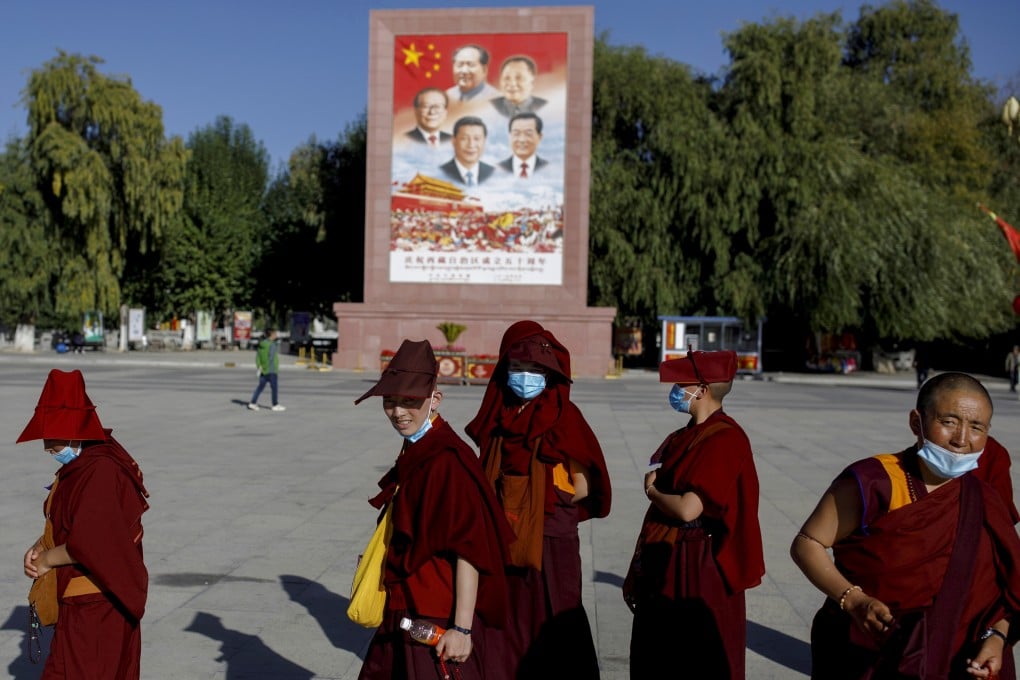Advertisement
China’s Tibet Communist Party chief targets religion and separatism
- Tibetan Buddhism has always been a part of Chinese culture, Wu Yingjie says as party marks 70 years of control of the region
- Analysts say authorities are seeking to redefine history to tighten control
Reading Time:3 minutes
Why you can trust SCMP
2

The Communist Party’s top official in Tibet has called for greater stress on Chinese elements in religion and a further crackdown on “separatism” as the party marks 70 years of control of the region.
Tibet party secretary Wu Yingjie said on Saturday that the country must pursue further “Sinicisation of religion” and a stronger role for the party’s leadership in Tibet, a move analysts said was meant to reframe the region’s history and tighten Beijing’s grip on the area.
“We must ... promote [the concept] that Tibetan Buddhism has always been a part of the Chinese culture,” Wu said.
Advertisement
The comments came a day after the party issued a report defining its official position on Tibet, claiming the area “has been an inseparable part of China since ancient times”, dating back to the seventh century.
“The Tubo Kingdom established in Tibet in the seventh century contributed significantly to the exploration of China’s southwestern borders,” it said.
Advertisement
The report, known as a white paper, also accused Western forces of supporting the Tibetan independence movement, and vowed to continue to crack down on “separatist activities” in the region.
Advertisement
Select Voice
Select Speed
1.00x